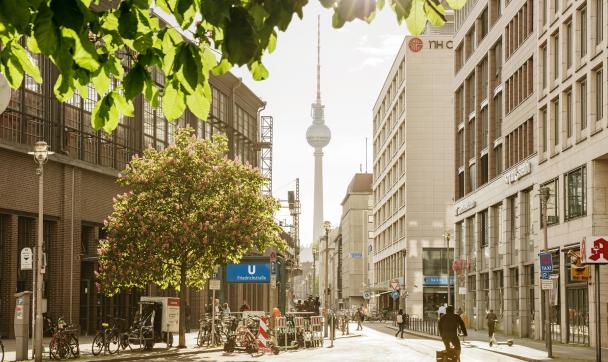Germany opens portal for visa applications amid personnel shortage in Europe’s largest economy
By Jeph Ajobaju, Chief Copy Editor
Europe’s largest economy Germany has launched a new online platform that simplifies visa application process for Nigerians and other nationals seeking to work, study, or join family members in the country.
The portal, touted by Foreign Minister Annalena Baerbock as “a real administrative revolution,” became operational on January 1.
It is accessible globally and allows applicants to select from 28 categories of national visas available in all 167 German visa offices worldwide.
The initiative is part of a broader effort to modernise the immigration process and address Germany’s pressing shortage of skilled workers.
“Every year, Germany is short of at least 400,000 skilled workers,” Baerbock said.
“At times like these, we cannot afford to downright put the best off coming here to roll up their sleeves because of long paper application forms and even longer waiting periods.”
Baerbock pitched the importance of a digital-first approach, stressing that Germany, as an immigration nation, requires “a national visa process that is state-of-the-art — modern, digital, and secure.
“This reform aims to mitigate the challenges migrants often face with German bureaucracy, providing a streamlined and efficient alternative to traditional paper-based systems.
“By simplifying visa access, Germany hopes to attract skilled workers and ensure a more inclusive and responsive immigration system in line with modern demands.”
New Skilled Immigration Act in Germany
In the new Skilled Immigration in Germany, existing mechanisms for skilled workers with a university degree, such as the EU Blue Card, continue and are in some cases extended.
In addition, the new opportunity card (Chancenkarte) enables third-country nationals to seek employment, according to explanation provided online at https://www.make-it-in-germany.com/en/visa-residence/skilled-immigration-act
The new law has several parts. The provisions were phased in since November 2023. Here is an overview of the amendments:
The new EU Blue Card since November 2023
In implementing the requirements of Directive (EU) 2021/1883, the German legislator has restructured and widened the migration possibilities with an EU Blue Card:
Lower salary thresholds: The salary thresholds for the EU Blue Card in regular and shortage occupations was significantly lowered.
A minimum salary of 45.3% of the annual contribution assessment ceiling for pension insurance (in 2025: €43,759.80) now applies to shortage occupations and new entrants to the labour market; for all other occupations, the figure is 50% (in 2025: €48.300).
Wider group of people
New entrants to the labour market: The possibility of obtaining an EU Blue Card was opened to a wider group of people.
For example, foreign people who have graduated from university within the last three years can obtain an EU Blue Card if their job in Germany earns them a minimum salary of 45.3% of the annual assessment ceiling for pension insurance (in 2025: €43.759,80). This applies to both regular and shortage occupations.
IT specialists: Another change is that IT specialists now are able to obtain an EU Blue Card if they do not have a university degree but can prove that they have at least three years of comparable professional experience.
In this case, the lower salary threshold for shortage occupations applies (45.3% of the annual assessment ceiling; in 2025: €43,759.80).
Extension of the list of shortage occupations: The list of shortage occupations for the EU Blue Card was significantly expanded.
In addition to the existing shortage occupations (mathematics, IT, science, engineering, and human medicine), skilled workers in the following occupations are able to obtain an EU Blue Card if they meet the other requirements:
- Manufacturing, mining, construction, or distribution managers
- Information and communications technology service managers
- Professional services managers, such as child care or health services managers
- Veterinarians
- Dentists
- Pharmacists
- Nursing or midwifery professionals
- School and out-of-school teachers and educators
Read also:
In riposte to Obi, Tinubu orders maintenance of federal roads countrywide













